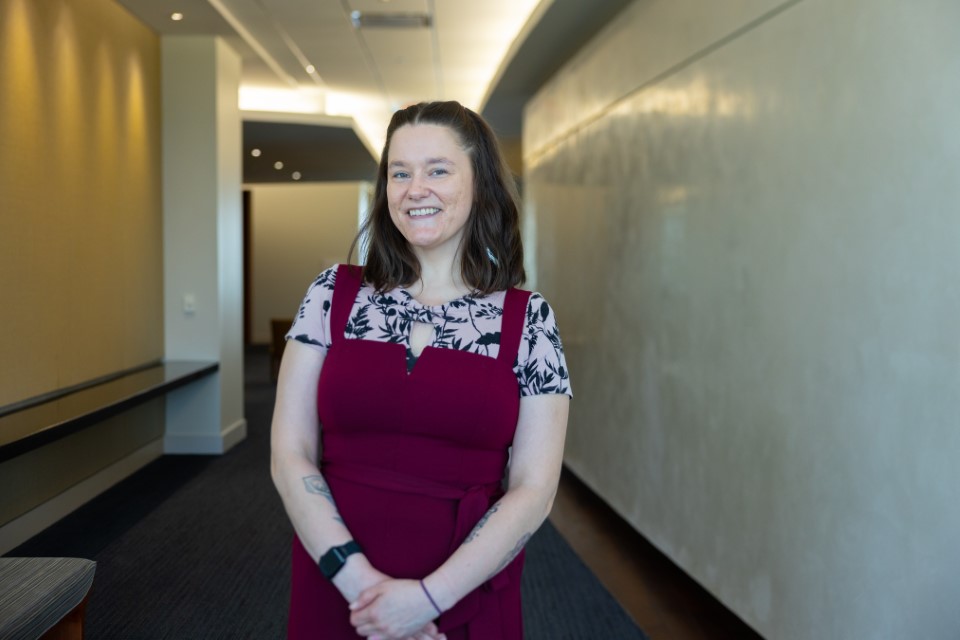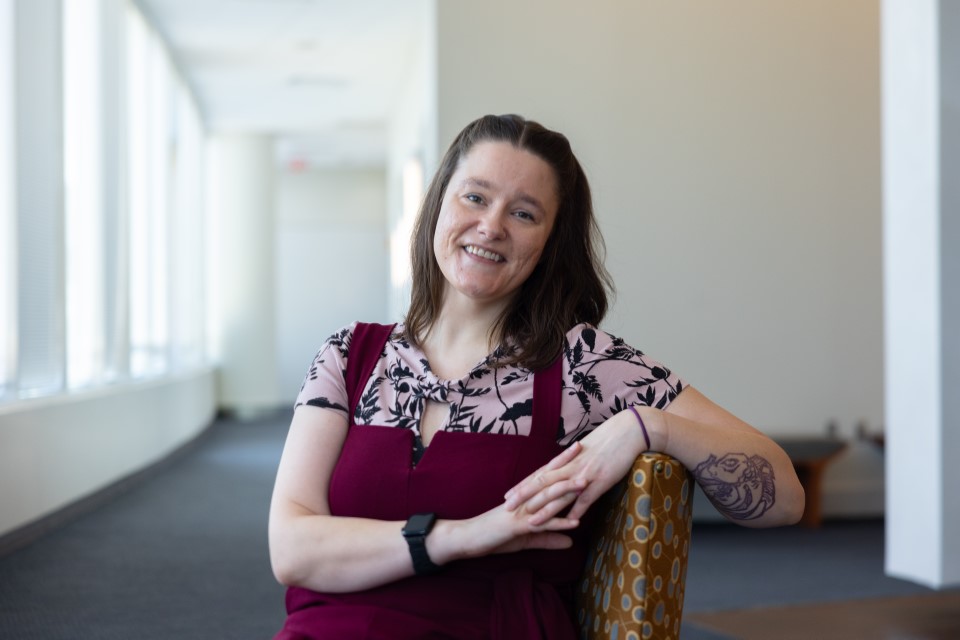Learning Facilitator Becca Cato has a knack for teaching. Whether she’s training Customer Service employees in best practices on the phone or explaining the complexities of claims processing to a group of new hires, she takes pride in lifting others up.
Even outside work, she puts her skills to work on stage and in the classroom, teaching and performing improv theater with a local theater company. She considers it an outlet for her creativity, expression and humor, and a masterclass for everyday life and work.
Becca’s love for comedy began at an early age, growing up with a mother who was a standup comedian. Comedy and laughter was part of life at home, and something her family thrived on. Becca even started working the door for her mother at shows before she was old enough to go inside and watch them.
“I always knew it was different being the daughter of a comedian, but I loved it,” Becca says. “I remember seeing Tracy Morgan at parties and stealing Neal Brennan’s headband as a little kid.”
In 2016, a few years after moving to the Chattanooga area, Becca started attending open-house improv workshops at Improv Chattanooga. That decision turned out to have a huge impact on her life.
“I made so many life-changing friendships through improv and even met my husband that first night at the open house,” Becca says. “We got married a few years ago in the same building where we had our first class, officiated by our first improv teacher.”
Becca defines improv as “creating a reality and sticking to it.”
“Right at the start of a scene, you get to choose who you want to be, what your character is,” Becca explains. “That really helps me set the stage in life or work conversations, because it lets me react to who the other person’s ‘character’ as a human being in the conversation. It helps me be more receptive to the reality I find myself in.”
 “Yes and” … a new reality
“Yes and” … a new reality
In 2018, Becca joined BlueCross. She was looking for something different from retail work and saw the chance at BlueCross to grow a career.
“I didn’t have a definite idea of what I wanted to do, but BlueCross seemed like a great opportunity,” she says. “I was worried at first about fitting in, because I’m typically quirky first and serious second. I was afraid I wouldn’t fit in here.”
Once she started, however, she was happily surprised to find herself accepted into the company culture.
“I was worried about working in the corporate world,” Becca says, “only to find out it could be what I wanted to make it.”
Becca finished her bachelor’s degree while working in customer service thanks to the BlueCross Tuition Reimbursement program. She had her sights set on teaching, and planned to go into childhood education when she got an opportunity to put her teaching interest to work for other employees.
“I hear from most of my trainees that they’ve never worked somewhere that cares about their employees the way BlueCross does,” Becca says. “It’s meant a lot to be part of that experience for so many.”
Now she’s combining her interests at work and seeing the effect firsthand with her students.
How improv informs her work
As a learning facilitator, Becca is constantly pivoting her lessons at work. She needs to be prepared to answer any questions the trainees might have on insurance, policies or claims they will be reviewing.
Almost a decade of improv has taught Becca is to be present, receptive and responsive — and that’s the very thing she teaches our employees to do for members.
“Effective communication relies on listening and replying to our members in a respectful and positive way,” Becca says. “That’s something we teach in improv, as well — how to properly respond to a situation.”
Becca believes it’s human nature to assume what others have to say, rather than listening and letting them complete their thoughts. Becca emphasizes the importance of being in the moment on stage or when speaking to members. A few lessons she brings from improv to her training sessions and everyday life include:
- Improv starts with listening. Respond to what you’re being asked, not what you assume you’re being asked. Sometimes we skip ahead to our assumptions and miss a detail that could make all the difference.
- Yes, and … Acknowledge the reality someone is presenting. That includes feelings as well as facts. Start from a place of understanding and work your way to a common reality together.
- Say what’s in your brain. The best way to say something is how you would say it, not how someone else would. Authenticity is as important as accuracy. Don’t try to sound smart or clever; just be honest.
- Remember, we’re all human. We all get nervous putting ourselves out there and we all get embarrassed when we make mistakes. Show patience to others as well as yourself.
“Every conversation you have is improvised, when you think about it,” Becca explains. “I try to remind people of that to make the experience less scary.”


 Marie is a senior Public Relations and Advertising major at Lee University in Cleveland, Tenn. She joined the BlueCross corporate communications team as an intern in July 2024.
Marie is a senior Public Relations and Advertising major at Lee University in Cleveland, Tenn. She joined the BlueCross corporate communications team as an intern in July 2024.